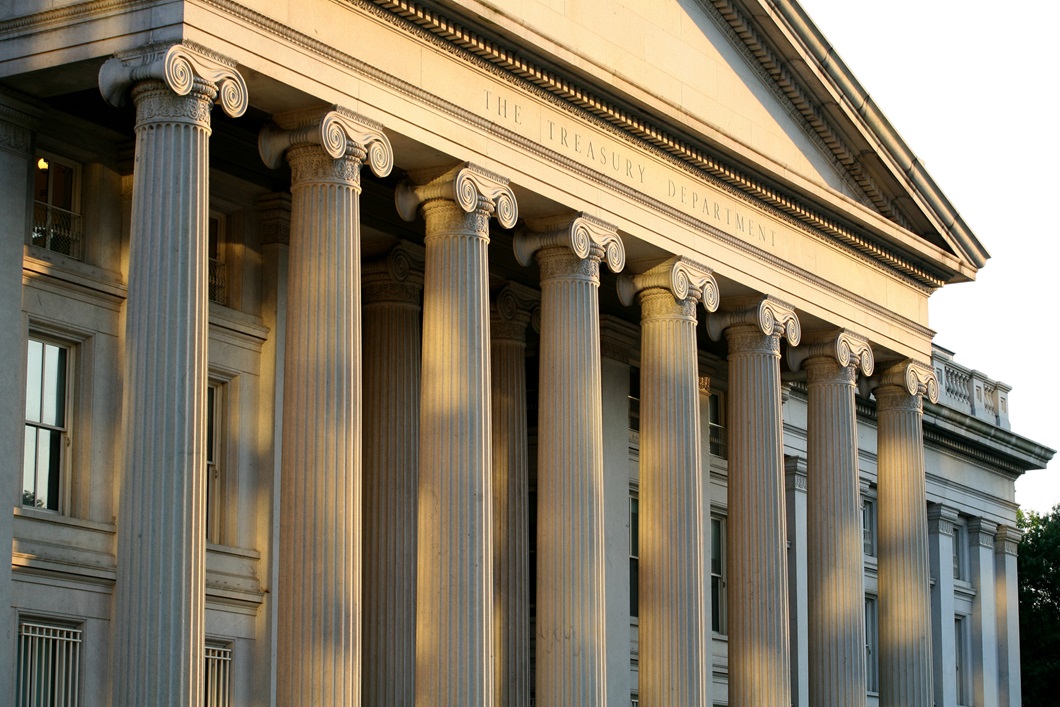
New Public Policy Events to Advance the Cause

Throughout 2023, our Public Policy Team has introduced policymakers in Congress and federal agencies to the most important issues facing digital advertising, from data privacy and kids’ online safety, to competition and the First Amendment. By the end of 2023, IAB and Internet for Growth, a coalition of small businesses and creators in all 50 states, will have met with well over 100 members of Congress and their staff at individual meetings and events such as ALM, IAB Public Policy and Legal Summit, and most recently, IAB on the Hill.
Our inaugural reception on Capitol Hill attracted bipartisan House and Senate staff, agency personnel, and industry professionals. IAB members Azerion, Frameplay, and Venatus shared a fresh perspective on digital advertising’s importance to innovation and entertainment.
In addition to gaming, AR, and VR companies on the cutting edge of technology, Internet for Growth helped to represent the full spectrum of digital advertising. The Pitch Place, an online hub for journalists, and Spartan Junk Removal, a home services company, described the importance of digital advertising to a free press and entrepreneurialism. Howard County Community College described the importance to students seeking education and employment. District Performance and Physio, a local physical therapy specialist, stressed the importance of targeted ads to serve a unique clientele.
We were proud to host Congresswoman Deborah Ross (D-NC), Vice Ranking Member of the House Judiciary Committee, as well as staff from the offices of Senators Ted Ted Cruz (TX) and Ron Johnson (WI), Representatives Jamie Raskin (MD-08), Yvette Clarke (NY-09), Brian Mast (FL-21) and more, who learned about digital advertising’s contributions to our economy, culture, and society. IAB described legislation and regulation that could reverse progress. For example, the U.S. needs a national data privacy law to simplify a complex patchwork of state laws. However, the American Data Privacy and Protection Act (ADPPA) would exempt state laws, broaden definitions of restricted data, eliminate targeted advertising, raise fines and penalties, and duplicate enforcement at multiple layers of government.

As we work to improve a national privacy bill, IAB is also working to improve and harmonize state laws from Maine to Maryland and Minnesota, which would ban pseudonymous data and targeted advertising, restrict data sharing even for security purposes, and open the floodgates to frivolous private lawsuits, a so-called “private right of action.” Because targeted advertising enables communication, eliminating it could bridge participants’ First Amendment rights, as we and other organizations explained to Maine legislators in our opposition letter to a state bill.
To illuminate data privacy and other issues, in 2023 IAB introduced our Congressional Education Series, where federal legislative staff learned about the evolution of the internet; programmatic advertising; the special place of targeted advertising; the role of brands, agencies and publishers; privacy solutions such as IAB Tech Lab’s Global Privacy Platform and Google’s Privacy Sandbox; and the potential impact of the ADDPA and the AMERICA Act, a bill to prohibit all-in-one ad platforms. Early next year, staff will travel to New York City to experience the life of a digital ad, as told by IAB member companies.
We need more IAB members to get involved. To partner with us at an IAB event and make a difference to the digital advertising discussion, contact Lartease Tiffith, EVP for Public Policy, at [email protected]. ALM from January 28th to the 30th on San Marco Island is coming soon. Mark your calendars for IAB Public Policy and Legal Summit in Washington, D.C. on April 2nd. We hope to see you at IAB on the Hill next year, too!
Related Coverage:
Data-Driven Digital Advertising is Crucial to Entrepreneurs and Under Threat (Entrepreneur)
Protecting the Free and Open Internet at the Supreme Court

In 2024, the Supreme Court will hear NetChoice & CCIA v. Moody / Paxton, a case involving conflicting court decisions regarding Section 230 of the Communications Decency Act. “The twenty-six words that created the internet,” according to legal scholars, Section 230 protects online media platforms from liability for user-generated content. In an amicus brief filed this month, IAB, Chamber of Progress, Access Now, Consumer Technology Association and other tech and civil society groups urge the Court to uphold long-standing internet law and First Amendment protections for website owners and users, and to overturn Texas and Florida laws outlawing content moderation.
Amicus briefs, or “friend of the court” briefs from interested parties, can help to prevent rulings with unintended consequences. Supporting NetChoice and the Computer and Communications Industry Association (CCIA), IAB argues that online platforms and their users have the right to assemble and express themselves freely without government interference or fear of harm. A brand safety issue as well as a public safety one, content moderation has helped the ad-supported internet to prosper, and diverse voices to find community and flourish. Attempting to correct perceived “viewpoint bias,” state laws compelling objectionable speech would encourage more such laws and make the internet technically ungovernable. Ironically, they would decrease opportunities for free expression, as websites and platforms abandon the market. IAB supports Section 230’s liability protections and its protections for editorial discretion.
Related Coverage:
Supreme Court Takes Up Battle Over Content Moderation (MediaPost)
Overreaching FTC Threatens Digital Advertising

In another amicus brief in October, IAB challenges an FTC lawsuit against Amazon that could have far-reaching consequences for digital advertising and marketing, industries the FTC paints as inherently unfair and deceptive not only in its suit against the e-commerce company, but also in several proposed rulemakings this year.
In FTC v Amazon, the federal agency enforcing consumer protection and antitrust law uses buzzwords like “dark patterns” to describe truthful advertising with consumer benefits. Offering lower prices to subscribers is a “forced action.” Reminding shoppers they can save more money “evokes anxiety and fear of loss.” Design techniques such as large type, bold colors, and repetition, are “manipulative.” As we point out, they are as old as time. The FTC uses many of the same techniques in its own communications.
Over FTC objections, a federal judge allowed IAB to submit these and other important points to the court. Representing over 700 leading media companies, brand marketers, agencies, and technology companies, we have valuable information to share and serious concerns about the agency’s crusade to punish truthful marketing the FTC deems too convincing. “Whatever happens with Amazon, IAB and its members are gravely concerned about the threat to truthful speech in advertising and uneven, subjective enforcement,” according to our brief for the U.S. District Court for Western Washington.
The FTC has issued other proposed rules for digital advertising and marketing this year. IAB supports its goal to improve confidence in customer reviews and testimonials, but a sweeping proposal the agency issued in October could penalize honest opinion, running afoul of the First Amendment. Rulemaking may require companies to verify the truthfulness of subjective opinion or face consequences. Prohibiting “insiders” from sharing comments, it could unfairly silence company employees. While IAB supports penalizing the purchase of fake reviews, broad prohibitions on customer incentives could undermine a cornerstone of the online economy, our EVP for Public Policy Lartease Tiffith writes in a public comment to the agency.
While we await an answer to our request for a hearing, the FTC has granted our request in another case. On January 16th, 2024, IAB’s EVP will appear at a virtual hearing to elaborate industry concerns with proposed rules for online subscription services, more extensive than those the FTC previewed, taking the industry by surprise. In public comments IAB filed in June, we explain the agency failed to give sufficient notice of new mandates, dictating byzantine procedures for auto-renewals that will cost consumers time and money.
A major regulatory change for a defining feature of the digital economy could have a huge impact on businesses of every size, yet the FTC has produced neither a pattern of abuse, nor an economic analysis. “We support punishing bad actors, but conflicting and confusing rules will do more harm than good,” said Tiffith in a statement accompanying the June filing. As 2023 has been, 2024 promises to be a busy year for IAB advocacy efforts at every level of government and every branch, as digital advertising continues to capture the attention of policymakers.
More IAB Public Policy News:
What Biden’s Executive AI Order Means for Advertising (Ad Age)
FTC to hold January hearing on ‘click to cancel’ rule (Payments Dive)
Without the Right Precautions, Influencers Could be at Risk for Legal Trouble (AdExchanger)
Lina Khan’s Rough Year at the FTC (New York Magazine)
GET INVOLVED
IAB holds regular meetings with members of its Public Policy Council. If you are interested in getting involved, please email Lartease Tiffith, EVP, Public Policy at [email protected].
This newsletter is intended for U.S. audiences and is not for those in the European Economic Area or the United Kingdom.




